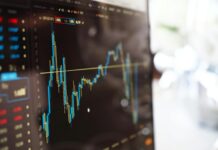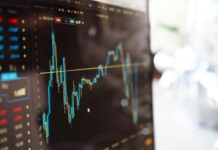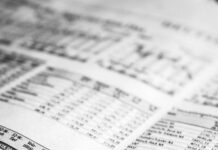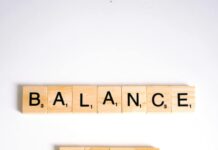Are you wondering how to check if a broker is regulated before diving into the world of trading? You’re not alone! In today’s fast-paced financial markets, choosing a reliable and trustworthy broker can make or break your investment journey. But with so many options out there, how can you be 100% sure that the broker you’re considering is legit? This article reveals essential tips that every trader must know to verify broker regulation, protect their funds, and avoid scams. If you’re serious about trading success, understanding broker regulation verification is an absolute game-changer!
So, why is it crucial to know how to check if a broker is regulated? Well, unregulated brokers often operate in shady ways, putting your money at serious risk. A regulated broker means they follow strict rules set by financial authorities, ensuring transparency and safety. But don’t worry if you’re new to this — we’ll break down the step-by-step process to verify broker licenses, highlight key regulatory bodies like the FCA, SEC, and ASIC, and share insider secrets to spot red flags instantly. Ready to become a savvy investor who never falls prey to fraud? Keep reading to unlock the ultimate guide on broker regulation checks!
In the sections ahead, you’ll discover top strategies for verifying broker credentials online, how to use official regulatory websites effectively, and tips for confirming a broker’s authenticity. Whether you’re a beginner or an experienced trader, these insights will empower you to make informed decisions and trade with confidence. Don’t let uncertainty hold you back—learn the proven methods that turn you from a cautious investor into a confident market player today!
7 Proven Methods to Verify If Your Forex Broker Is Fully Regulated
In the fast-moving world of forex trading, choosing the right broker is one of the most critical decisions any trader make. But how can you be sure your forex broker is fully regulated? This question is really important because unregulated brokers can put your funds and personal information at risk. For traders in New York and everywhere else, knowing how to check if a broker is regulated is an essential skill that every forex trader should learn. Below are 7 proven methods to verify if your forex broker is fully regulated, along with practical tips on what to look for and how to avoid common pitfalls.
1. Check Official Regulatory Websites
One of the easiest and most reliable ways to confirm a broker’s regulation status is by visiting the official websites of financial regulatory authorities. In the United States, the main regulators are:
- National Futures Association (NFA)
- Commodity Futures Trading Commission (CFTC)
For brokers outside the U.S., you might check with:
- Financial Conduct Authority (FCA) – UK
- Australian Securities and Investments Commission (ASIC)
- Cyprus Securities and Exchange Commission (CySEC)
- Financial Services Authority (FSA) – Japan
You need to look up the broker’s name or registration number on these websites. If the broker is truly regulated, they will appear in the regulator’s database. This method works because regulators keep updated lists of all authorized firms.
2. Verify the Broker’s License Number
Every regulated broker must have a license number issued by the regulating body. This number is usually displayed on their website, often in the footer or “About Us” sections. However, don’t just trust what the broker says. You should take that license number and cross-reference it with the regulator’s database. Sometimes, fake brokers put fake license numbers to deceive traders.
3. Read Broker Reviews and Forums Carefully
While online reviews and forex forums can be biased or manipulated, they can still provide useful insights. Check platforms like Forex Peace Army or Trustpilot where traders share their experiences. If many users complain about withdrawal issues or suspicious behavior, it’s a red flag. However, remember that even regulated brokers can have unhappy clients, so use this method as a supplement, not the only source.
4. Understand the Broker’s Regulatory Jurisdiction
Not all regulators offer the same level of protection. For example, brokers regulated by the NFA in the U.S. or FCA in the UK generally have stricter rules and higher standards compared to some offshore regulators. If your broker is regulated but by a less known or offshore authority, you might want to be extra cautious.
Here’s a quick comparison table for popular regulators:
| Regulator | Location | Reputation Level | Client Fund Protection | Typical License Requirements |
|---|---|---|---|---|
| NFA | USA | High | Yes | Minimum capital, segregation of funds |
| FCA | UK | High | Yes | Capital requirements, client money rules |
| ASIC | Australia | Medium-High | Yes | Financial reporting, client asset segregation |
| CySEC | Cyprus | Medium | Yes | Capital adequacy, transparency |
| FSA | Japan | High | Yes | Strict conduct rules, capital requirements |
5. Look for Client Fund Protection Measures
Regulated brokers must segregate client funds from their own operational funds. This means your money should be held in separate bank accounts and not used for company expenses. You can usually find this information in the broker’s terms and conditions or regulatory disclosures. If this information is missing or vague, this might be a sign the broker is not fully regulated or transparent.
6. Check for Membership in Compensation Schemes
Some regulators require brokers to participate in compensation or investor protection schemes. For example, in the UK, FCA-regulated brokers participate in the Financial Services Compensation Scheme (FSCS) that protects clients if the broker goes insolvent. This adds an extra layer of safety for traders. Check if your broker offers such protections by asking them directly or by checking the regulator’s website.
7. Review Broker’s Transparency and Communication
Regulated brokers are usually more transparent about their operations. They provide clear terms and conditions, risk warnings, and have accessible customer support. If you find a broker hiding crucial information or avoiding direct questions about their regulation, that should raise concerns. Also, check if their website has proper disclaimers and legal documents. Lack of these is often a bad sign.
Practical Example of Checking a Broker’s Regulation
Imagine you found a broker called “GlobalFX” and want to verify their regulation. Here’s how you might do it:
- Visit the broker’s website and find their license number (e.g., NFA ID: 123456).
- Go
Why Checking Broker Regulation Is Crucial: Top Tips for Safe Trading
Why Checking Broker Regulation Is Crucial: Top Tips for Safe Trading
In the fast-paced world of forex trading, choosing the right broker is often the difference between success and failure. It’s not just about low spreads or fancy trading platforms; ensuring that your broker is regulated is one of the most vital steps you should never ignore. Regulation acts like a safety net that protect traders from fraudulent activities, scams, and unethical practices. Unfortunately, many traders overlook this essential check, risking their hard-earned money to untrustworthy operators. If you want to trade safely, knowing how to check if a broker is regulated is a skill you must have.
Why Broker Regulation Matters So Much
Regulation is a system where governmental or independent authorities oversee brokers to make sure they follow strict rules. These rules often include keeping client funds separate from company funds, ensuring transparent pricing, and providing fair treatment to clients. Without such oversight, brokers may manipulate prices, delay withdrawals, or disappear with traders’ money. The forex market has seen countless scams over the years, especially in unregulated environments where fraudsters operate freely.
Historically, after the 2008 financial crisis, many countries stepped up their regulatory requirements to protect investors better. Agencies like the US Commodity Futures Trading Commission (CFTC), the UK’s Financial Conduct Authority (FCA), and the Australian Securities and Investments Commission (ASIC) have become the gold standards of broker regulation. They enforce rules that increase market integrity, which is why traders often prefer brokers licensed by these bodies.
Some key reasons why checking regulation is crucial:
- Protects your investment from fraud or theft
- Ensures broker follows industry best practices
- Provides legal recourse if disputes arise
- Increases transparency and trustworthiness
- Confirms broker’s financial stability and solvency
How To Check If A Broker Is Regulated: Essential Tips Revealed
It is surprisingly simple to verify a broker’s regulatory status if you know where to look. Many brokers proudly display their licenses on their websites, but don’t just take their word for it. Fake claims of regulation are common, so double-checking with the official regulator’s database is the safest way.
Follow these practical steps to confirm if a broker is really regulated:
- Identify the regulatory body mentioned on broker’s site (e.g., FCA, CFTC, ASIC)
- Visit the official website of the regulator
- Use their public search tool or register lookup feature
- Enter broker’s name or license number to verify
- Confirm the license is valid and active, and check any restrictions or warnings
For example, if a broker claims FCA regulation, you go to the FCA’s Financial Services Register online and type the broker’s name. If they are registered properly, you will see their license details including permissions and status. If nothing appears, then the broker is likely unregulated or using false information.
Common Regulatory Authorities and What They Stand For
Here’s a quick overview of top forex regulators traders should look for:
- FCA (Financial Conduct Authority) – UK-based, strict rules, strong client protection, requires segregated accounts.
- CFTC (Commodity Futures Trading Commission) – US regulator, oversees futures and forex markets, known for tough enforcement.
- ASIC (Australian Securities and Investments Commission) – Australia’s regulator, emphasizes fair conduct and transparency.
- CySEC (Cyprus Securities and Exchange Commission) – Popular in Europe, enforces MiFID directives, requires brokers to maintain capital adequacy.
- FSA (Financial Services Authority) – In Japan, one of the most conservative regulators, focusing on protecting retail investors.
Each one has slightly different rules and enforcement approaches. For example, US brokers regulated by the CFTC must adhere to high capital requirements and offer negative balance protection, which is not mandatory everywhere else.
What Happens If You Trade With An Unregulated Broker?
Trading with an unregulated broker is like walking in the dark without a flashlight. You might find some legitimate brokers that choose to avoid regulation to reduce costs, but most unregulated brokers operate with limited oversight and high risk.
Potential dangers include:
- Difficulty withdrawing funds or extreme delays
- Manipulated trading prices or unfair stop-loss triggers
- Lack of client fund segregation, risking loss if broker goes bankrupt
- No access to dispute resolution or compensation schemes
- Higher chances of being scammed or defrauded
Practical example: In 2019, a popular unregulated broker suddenly vanished, leaving thousands of traders unable to access their accounts. Because they were not regulated by any authority, victims had little legal recourse to recover lost money.
Simple Checklist for Safe Broker Verification
To help you quickly verify a broker’s regulation status, here is a handy checklist:
- Broker’s website displays clear regulatory information with license number
- Official regulator’s database confirms active license
- Broker operates in compliance with local laws and trading standards
- Client funds are held in
How to Use Official Regulatory Websites to Confirm Broker Licensing Quickly
When you are diving into the world of forex trading, one of the most important steps you must take is to verify if your broker is legit and properly regulated. Many new traders overlook this critical step and end up dealing with shady firms that could disappear overnight or manipulate your funds. So, how to use official regulatory websites to confirm broker licensing quickly? This article will reveal essential tips on how to check if a broker is regulated, helping you make safer trading decisions.
Why Regulation Matters in Forex Trading
Regulation is kinda like a safety net in the financial world. Brokers who are licensed by official regulatory bodies have to follow strict rules designed to protect traders. This includes keeping client funds separate, providing transparent pricing, and submitting to regular audits. Without regulation, brokers might run off with your money or execute trades unfairly.
Regulatory authorities also provide a way for traders to file complaints if something goes wrong. For example, if a broker refuses to withdraw your profits or manipulates pricing, you can report them to the regulator and possibly recover your losses. This means knowing how to check if a broker is regulated isn’t just good practice, it’s essential.
Official Regulatory Websites: Your First Go-To Source
One of the fastest way to confirm a broker’s license is by visiting the regulator’s own website. Most reputable regulators maintain an online database of licensed companies that anyone can search through. Just enter the broker’s name or license number, and you will get instant validation if they are officially registered.
Here are some of the major regulatory bodies and their websites you can check:
- United States: Commodity Futures Trading Commission (CFTC) and National Futures Association (NFA) — www.nfa.futures.org
- United Kingdom: Financial Conduct Authority (FCA) — www.fca.org.uk
- Australia: Australian Securities and Investments Commission (ASIC) — www.asic.gov.au
- European Union: Cyprus Securities and Exchange Commission (CySEC) — www.cysec.gov.cy
- Japan: Financial Services Agency (FSA) — www.fsa.go.jp
Each of these sites have search tools and sometimes downloadable lists of registered brokers. It’s the most reliable way to confirm licensing status because these sites are updated frequently and directly managed by the regulators.
Step-by-Step Guide: How To Check If A Broker Is Regulated
You don’t need to be tech savvy to perform this check. Just follow these essential steps:
- Find the broker’s full legal name and license number: This info is usually on their website footer or in the “About Us” section.
- Go to the regulator’s official website: Use the list above or search for the regulator based on the broker’s claimed location.
- Use the search tool or license verifier: Input the broker’s name or license number exactly as it appears.
- Check the license status: A valid license will show active status, issue date, and sometimes additional info like address or contact details.
- Look for warnings or bans: Some regulators publish warnings about brokers caught violating rules.
- Cross-check with multiple regulators if needed: Some brokers operate in different jurisdictions and have multiple licenses.
Common Mistakes When Checking Broker Regulation
Many traders make errors that could cost them. Here’s what you should avoid:
- Relying only on the broker’s claim: Just because a broker says they are regulated doesn’t mean it’s true. Always verify on the official site.
- Ignoring small print: Some brokers use similar names to reputable firms or fake license numbers. Always double-check.
- Not checking for warnings: A broker might have a license but also have ongoing investigations or client complaints.
- Assuming offshore licenses are equal: Some countries have lax regulations. Make sure the regulator is well-known and respected.
Broker Regulation Comparison Table
To better understand how regulation varies, here’s a quick comparison of some popular regulators:
| Regulator | Jurisdiction | Type of Regulation | Trader Protection | Reputation Level |
|---|---|---|---|---|
| CFTC/NFA | USA | Futures & Forex | Very High | Top-tier |
| FCA | UK | Financial Services | Very High | Top-tier |
| ASIC | Australia | Financial Markets | High | High |
| CySEC | Cyprus | EU Markets | Moderate | Medium |
| FSA | Japan | Financial Markets | High | High |
Practical Examples of Using Regulatory Websites
Suppose you want to check a broker called “GlobalFX Pro.” You find their license number on their website: 123456. You visit the FCA website, enter “GlobalFX Pro” or license number, and it shows “No results found.” This
What Are the Red Flags? Identifying Unregulated Brokers Before Investing
When it comes to investing in the forex market, one of the most important things you must do is to choose a reliable broker. However, not every broker operates under strict regulations, and falling for an unregulated broker can cost you dearly. But what are the red flags to watch out for before investing? And how can you really know if a broker is regulated? These questions are essential for every forex trader, especially those based in New York or anywhere else around the world. This article tries to explain key warning signs and share practical tips to check if the broker you consider is legit or not.
What Are the Red Flags? Identifying Unregulated Brokers Before Investing
Unregulated brokers often show some common warning signs that could help investors to avoid a bad experience. These red flags are not always obvious at first glance, but once you know what to look for, spotting them becomes easier. Here are some typical indicators:
- No Clear Regulatory Information: If the broker’s website does not mention any regulatory authority or license number, this is a big warning sign. Legit brokers usually display their licenses prominently.
- Unrealistic Promises or Guaranteed Returns: Forex trading is risky by nature, so any broker promising guaranteed profits or extremely high returns should be viewed with suspicion.
- Lack of Transparency: If it’s hard to find information about the company’s headquarters, management team, or contact details, that suggests something to hide.
- Poor Customer Support: Unregulated brokers often provide subpar customer service or don’t respond to queries promptly.
- Pressure to Deposit Quickly: Aggressive tactics pushing you to deposit funds fast without giving you enough time to research is a red flag.
- No Third-Party Audits: Reputable brokers have regular audits or reports from independent firms to ensure fairness.
- Negative Reviews and Complaints: Multiple negative feedback or scam reports on forums and review sites indicate caution is needed.
How To Check If A Broker Is Regulated: Essential Tips Revealed
Knowing whether a broker is regulated is not just about reading their website. You need to verify the information through official sources and understand what regulation means in the forex world. Here are some practical steps you can take:
- Ask for the Broker’s License Number: Always request this and write it down.
- Cross-Check With Official Regulatory Bodies: Use the license number to search on the websites of regulators like:
- U.S. Commodity Futures Trading Commission (CFTC)
- National Futures Association (NFA) in the U.S.
- Financial Conduct Authority (FCA) in the UK
- Australian Securities and Investments Commission (ASIC)
- Verify the Broker’s Registered Address: Fraudulent brokers might use fake addresses or virtual offices.
- Look for Membership in Industry Associations: Such as the International Financial Services Commission (IFSC) or similar bodies.
- Check for Regulatory Warnings: Some regulatory authorities publish blacklists or warnings against certain brokers.
- Review Their Terms and Conditions: Legitimate brokers will have clear, fair trading rules and withdrawal policies.
How to Check If a Broker Is Regulated — A Simple Checklist
To make it easier for you, here’s a checklist that you can follow every time you look into a new forex broker:
- [ ] Does the broker provide a valid license number on their website?
- [ ] Have you verified this license on the official regulator’s website?
- [ ] Is the broker’s company registered in a reputable jurisdiction?
- [ ] Is there transparent information about the company’s management and history?
- [ ] Do they provide clear terms, fees, and withdrawal policies?
- [ ] Have you checked independent reviews and forums for feedback?
- [ ] Is there a reliable customer support system available?
- [ ] Are their trading platforms audited or certified by third parties?
- [ ] Have you looked for any regulatory warnings or blacklists?
Comparing Regulated vs Unregulated Brokers: What You Should Know
| Feature | Regulated Broker | Unregulated Broker |
|---|---|---|
| Licensing | Registered with recognized authorities | No valid license or registration |
| Customer Protection | Offers investor protection schemes | No protection, funds at higher risk |
| Transparency | Provides clear legal and financial info | Often vague or misleading information |
| Trading Conditions | Fair spreads, transparent fees | Hidden fees, unfair spreads |
| Complaint Handling | Formal dispute resolution available | No formal process, hard to get refunds |
| Market Reputation | Generally positive, backed by reviews | Frequent scam reports, negative feedback |
Practical Example: Verifying a Broker’s Regulation
Imagine you find a broker called “ForexProNY.” Their website says they are licensed by the NFA in the U.S. First, copy their license number,
Step-by-Step Guide: How to Check Broker Regulation Status Like a Pro
Navigating the world of forex trading can be exciting but also risky, especially when you don’t know if your broker is legit or not. Before you hand over your hard-earned money, it’s crucial to check if the broker is regulated. Many traders overlook this step and end up in trouble. So, how to check if a broker is regulated? This step-by-step guide will show you exactly how to check broker regulation status like a pro, with essential tips revealed along the way.
Why Broker Regulation Matters
Regulation is like a safety net for traders. When a broker is regulated, it means they follow certain rules set by a financial authority. These rules protect traders from fraud, ensure fair trading practices, and maintain transparency. Without regulation, brokers might disappear with your money or manipulate prices. The history of forex regulation goes back decades, with major financial hubs like the US, UK, and Europe setting up authorities to monitor brokers.
Some major regulators include:
- Commodity Futures Trading Commission (CFTC) in the United States
- Financial Conduct Authority (FCA) in the United Kingdom
- Australian Securities and Investments Commission (ASIC)
- Cyprus Securities and Exchange Commission (CySEC)
Each regulator have its own set of rules and the level of protection it offers varies. For example, the FCA is known for strict oversight, while some offshore regulators might be more lenient.
Step 1: Identify the Broker You Want to Check
Start by gathering basic information about the broker. Usually, brokers display their regulatory status on their website, often in the footer or “about us” section. But don’t just rely on what they say. Some scammers will claim to be regulated without proof. You need the broker’s full legal name, registration number, and the regulator they claim to be licensed by.
Step 2: Visit the Regulator’s Official Website
Once you have the broker’s regulatory details, go directly to the regulator’s website. For example, if the broker says it’s regulated by the FCA, visit the FCA’s official site (https://www.fca.org.uk). Most regulators offer a search tool where you can input the broker’s name or registration number.
Check this information carefully:
- Is the broker’s name listed exactly as it appears on their website?
- Does the registration number match?
- Is the license still active or has it been suspended?
If you can’t find the broker in the regulator’s database, it’s a big red flag.
Step 3: Understand Different Types of Regulation
Not all regulation is equal. Some brokers might be regulated in multiple countries, while others only in one. Also, some brokers operate under “registration” which is different from “licensing.” Here’s a quick comparison:
| Aspect | Licensing | Registration |
|---|---|---|
| Authority’s Control | High, full oversight | Limited, minimal oversight |
| Trader Protection | Strong protections in place | Basic protections |
| Suitability for US traders | Usually allowed | Often restricted |
| Examples | CFTC (US), FCA (UK), ASIC (AU) | Some offshore regulators |
Knowing these differences helps you understand the risk level associated with a broker.
Step 4: Use Third-Party Verification Websites
Besides regulators’ sites, there are independent websites and forums where traders share experiences and verify broker credentials. Sites like Forex Peace Army, Trustpilot, and BrokerCheck provide reviews and warnings. But beware that some reviews may be biased or fake, so use them just as additional resources.
Step 5: Check for Warning Signs and Red Flags
Even if a broker claims to be regulated, you should look for other warning signs. Some common red flags include:
- Promises of guaranteed profits or no risk
- Lack of clear contact information or physical address
- Unusual withdrawal restrictions or fees
- Pressure tactics to deposit more money quickly
If you spot these issues, it might be better to avoid that broker regardless of their regulation claims.
Practical Example: Checking a Broker’s Regulation
Let’s say you found a broker called “Global Forex Ltd.” on a trading forum. They claim to be regulated by ASIC with registration number 123456. Here’s what you do:
- Go to ASIC’s official website.
- Use their search tool to enter “Global Forex Ltd.” and registration number “123456.”
- Verify if the broker appears in the database and if the license is active.
- Cross-check the broker’s website for the same details.
- Look for trader reviews about “Global Forex Ltd.” on independent sites.
If all these check out, it’s a good sign the broker is regulated.
Summary Checklist: How to Check Broker Regulation Status Like a Pro
- Obtain the broker’s full legal name, regulator name, and registration number.
- Visit the
Conclusion
In conclusion, verifying whether a broker is regulated is a crucial step to ensure the safety and security of your investments. By checking the broker’s registration with reputable financial regulatory authorities, such as the SEC, FCA, or ASIC, you can confirm their legitimacy and adherence to industry standards. It’s important to review the broker’s license number, cross-reference it on official regulatory websites, and be wary of brokers operating without proper authorization. Additionally, reading customer reviews and seeking recommendations can provide extra insight into their credibility. Taking these precautions helps protect you from potential scams and ensures your trading experience is transparent and reliable. Before committing your funds, make it a priority to conduct thorough due diligence on your broker’s regulatory status. Doing so empowers you to trade confidently, knowing your investments are in safe hands. Start today by verifying your broker’s credentials and safeguard your financial future.




















